 The Australian Koalas population suffered an extraordinary hit in the bush fires of Australia. It took 3 months for the firemen to control the fires. The Australian Koalas population suffered an extraordinary hit in the bush fires of Australia. It took 3 months for the firemen to control the fires. |
|
|
|
 The NIIT (National institute of Information Technology), a multi-national company has been selected as one of the EdTech companies for the NEAT initiative. The NIIT will work with AICTE to implement the vision of Ministry of HRD (Human and Resource Development) on NEAT. The NIIT (National institute of Information Technology), a multi-national company has been selected as one of the EdTech companies for the NEAT initiative. The NIIT will work with AICTE to implement the vision of Ministry of HRD (Human and Resource Development) on NEAT. |
|
|
|
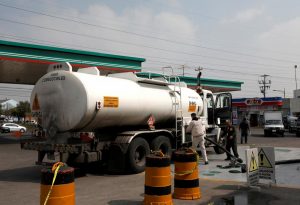 The “Paperless Licensing Process” has been launched by the Department for Promotion of Industry and Internal Trade (DPIIT), for Petroleum Road Tankers. DPIIT has launched the process through Petroleum and Explosives Safety Organisation (PESO). The process has been launched under the Petroleum Rules, 2002. The “Paperless Licensing Process” will led to online filing of the applications including the fee payment and thus heading towards digitisation. The applicants will be intimated through email and SMS. Under the above process, the license would be authorised by the concerned officer and would be electronically dispatched to the applicant. The “Paperless Licensing Process” has been launched by the Department for Promotion of Industry and Internal Trade (DPIIT), for Petroleum Road Tankers. DPIIT has launched the process through Petroleum and Explosives Safety Organisation (PESO). The process has been launched under the Petroleum Rules, 2002. The “Paperless Licensing Process” will led to online filing of the applications including the fee payment and thus heading towards digitisation. The applicants will be intimated through email and SMS. Under the above process, the license would be authorised by the concerned officer and would be electronically dispatched to the applicant. |
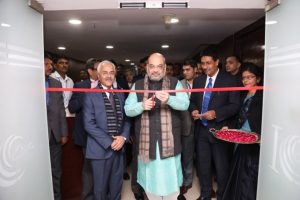 Union Home Minister has inaugurated the National Cyber Crime Reporting Portal and Indian Cyber Crime Coordination Centre (I4C) located in New Delhi. The National Cyber Crime Reporting Portal is a citizen centric vision which enables people to report cyber crimes online. The NCCRP will also provide access of cyber crime related complaints to the law enforcement agencies of the states and union territories to take action according to the law. It will also increase the coordination among the law enforcement agencies of the states and union territories in investigation of cases and resolving them. Presently, 3900 police stations and 700 police districts have been linked with the portal “cybercrime.gov.in”. It constitutes 7 elements: National Cyber Crime Research and Innovation Centre, National Cyber Crime Forensic Laboratory Ecosystem, National Cyber Crime Training Centre, Cyber Crime Ecosystem Management Unit, National Cyber Crime Threat Analytics Unit, National Cyber Crime Reporting Portal and Platform for Joint Cyber Crime Investigation Team. Indian Cyber Crime Coordination Centre (I4C) will manage all kinds of cyber crimes comprehensively in coordinated manner. At the Home Ministry’s initiative, 15 States and UTs have cleared the setting-up of Regional Cyber Crime Coordination Centres. Union Home Minister has inaugurated the National Cyber Crime Reporting Portal and Indian Cyber Crime Coordination Centre (I4C) located in New Delhi. The National Cyber Crime Reporting Portal is a citizen centric vision which enables people to report cyber crimes online. The NCCRP will also provide access of cyber crime related complaints to the law enforcement agencies of the states and union territories to take action according to the law. It will also increase the coordination among the law enforcement agencies of the states and union territories in investigation of cases and resolving them. Presently, 3900 police stations and 700 police districts have been linked with the portal “cybercrime.gov.in”. It constitutes 7 elements: National Cyber Crime Research and Innovation Centre, National Cyber Crime Forensic Laboratory Ecosystem, National Cyber Crime Training Centre, Cyber Crime Ecosystem Management Unit, National Cyber Crime Threat Analytics Unit, National Cyber Crime Reporting Portal and Platform for Joint Cyber Crime Investigation Team. Indian Cyber Crime Coordination Centre (I4C) will manage all kinds of cyber crimes comprehensively in coordinated manner. At the Home Ministry’s initiative, 15 States and UTs have cleared the setting-up of Regional Cyber Crime Coordination Centres. |
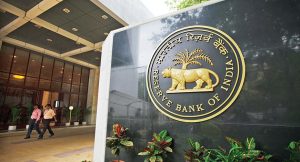 The Reserve Bank of India has released a report “National Strategy for Financial Inclusion (NSFI): 2019-2024“. The National Strategy for Financial Inclusion for the period 2019-2024 has been formulated by RBI under the aegis of Financial Inclusion Advisory Committee (FIAC). The report has been ratified by the Financial Stability Development Council (FSDC). As per the official statement, “the National Strategy for Financial Inclusion 2019-2024 sets forth the vision and key objectives of the financial inclusion policies in India to help expand and sustain the financial inclusion process at the national level through a broad convergence of action involving all the stakeholders in the financial sector. The strategy aims to provide access to formal financial services in an affordable manner, broadening & deepening financial inclusion and promoting financial literacy & consumer protection.” The Reserve Bank of India has released a report “National Strategy for Financial Inclusion (NSFI): 2019-2024“. The National Strategy for Financial Inclusion for the period 2019-2024 has been formulated by RBI under the aegis of Financial Inclusion Advisory Committee (FIAC). The report has been ratified by the Financial Stability Development Council (FSDC). As per the official statement, “the National Strategy for Financial Inclusion 2019-2024 sets forth the vision and key objectives of the financial inclusion policies in India to help expand and sustain the financial inclusion process at the national level through a broad convergence of action involving all the stakeholders in the financial sector. The strategy aims to provide access to formal financial services in an affordable manner, broadening & deepening financial inclusion and promoting financial literacy & consumer protection.” |
The report stated the following 6 pillars as part of strategic objectives to achieve the aim of financial inclusion:
|
 India has deployed its aircraft carrier INS Vikramaditya in Arabian Sea. The aircraft carrier was deployed amid the Pakistan-China naval exercise “Sea Guardians” taking place in North Arabian Sea. India has deployed its aircraft carrier INS Vikramaditya in Arabian Sea. The aircraft carrier was deployed amid the Pakistan-China naval exercise “Sea Guardians” taking place in North Arabian Sea. |
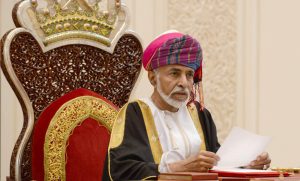 The longest serving ruler of Oman Sultan Qaboos bin Said passed away. He was a charismatic and visionary leader who transformed Oman into a modern and prosperous nation. He was ruling Oman since 1970. The Sultan is the prime decision-maker in Oman and also holds the portfolio of Prime Minister, supreme commander of the armed forces, minister of foreign affairs, minister of finance and minister of defence. The longest serving ruler of Oman Sultan Qaboos bin Said passed away. He was a charismatic and visionary leader who transformed Oman into a modern and prosperous nation. He was ruling Oman since 1970. The Sultan is the prime decision-maker in Oman and also holds the portfolio of Prime Minister, supreme commander of the armed forces, minister of foreign affairs, minister of finance and minister of defence. |
 The Union Government has released the “State Energy Efficiency Index 2019”. The index was released during the ‘Review, Planning and Monitoring (RPM)’ meeting held in New Delhi. The index is developed by Bureau of Energy Efficiency (BEE) along with Alliance for an Energy Efficient Economy (AEEE). The SEE Index 2019 traces the expansion and achievements of Energy Efficiency (EE) drives running in 36 states and union territories. The SEE Index 2019 constitutes quantitative, qualitative and outcome based 97 indicators to check energy efficiency initiatives, programs and outcomes in five distinct areas: transport, industry, agriculture, buildings, municipalities, and DISCOMs. State Energy Efficiency Index 2019 has divided States/UTs into 4 groups on the basis of Total Primary Energy Supply (TPES) desired to meet the State’s/UT’s actual energy demand through electricity, coal, oil, gas, etc. across all the sectors. The 4 groups are: ‘Front Runner’, ‘Achiever’, ‘Contender’ and ‘Aspirant’. The Union Government has released the “State Energy Efficiency Index 2019”. The index was released during the ‘Review, Planning and Monitoring (RPM)’ meeting held in New Delhi. The index is developed by Bureau of Energy Efficiency (BEE) along with Alliance for an Energy Efficient Economy (AEEE). The SEE Index 2019 traces the expansion and achievements of Energy Efficiency (EE) drives running in 36 states and union territories. The SEE Index 2019 constitutes quantitative, qualitative and outcome based 97 indicators to check energy efficiency initiatives, programs and outcomes in five distinct areas: transport, industry, agriculture, buildings, municipalities, and DISCOMs. State Energy Efficiency Index 2019 has divided States/UTs into 4 groups on the basis of Total Primary Energy Supply (TPES) desired to meet the State’s/UT’s actual energy demand through electricity, coal, oil, gas, etc. across all the sectors. The 4 groups are: ‘Front Runner’, ‘Achiever’, ‘Contender’ and ‘Aspirant’. |
| Key results of SEE Index 2019: The State Energy Efficiency Index 2019 was topped by Haryana, Karnataka and Kerala while Manipur, Jammu & Kashmir, Jharkhand and Rajasthan performed worst in their respective groups. The states of Haryana, Karnataka and Kerala were in “Achiever” group and there was not a single state in the “Front Runner” group. |
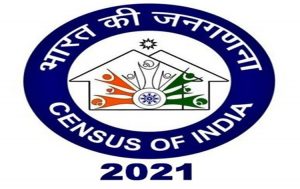 Census exercise India-2021 to begin on 1st April 2020 and will end on 30th of September 2020. Census India-2021 will be conducted through a mobile phone application. The enumerators of the census will seek the information of the mobile number of the head of the family, information related to TV, Internet, vehicles owned, toilets, source of drinking water besides asking other questions during the house listing phase of the exercise. Census exercise India-2021 to begin on 1st April 2020 and will end on 30th of September 2020. Census India-2021 will be conducted through a mobile phone application. The enumerators of the census will seek the information of the mobile number of the head of the family, information related to TV, Internet, vehicles owned, toilets, source of drinking water besides asking other questions during the house listing phase of the exercise. |
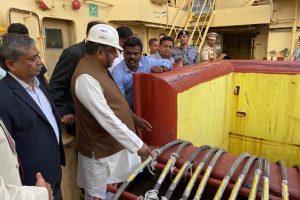 Union Minister for Communications, Electronics and Information Technology Ravi Shankar Prasad inaugurated the submarine cable works on laying between Chennai – Andaman and Nicobar Islands. The submarine cables will be initially laid from Chennai to Port Blair covering a distance of 1,450 kilometres. He also flagged off the ship to lay the cable at Chennai Port. At the initial stage of commissioning of the project itself, the islands can get a data speed of 400-gigabytes per second. Union Minister for Communications, Electronics and Information Technology Ravi Shankar Prasad inaugurated the submarine cable works on laying between Chennai – Andaman and Nicobar Islands. The submarine cables will be initially laid from Chennai to Port Blair covering a distance of 1,450 kilometres. He also flagged off the ship to lay the cable at Chennai Port. At the initial stage of commissioning of the project itself, the islands can get a data speed of 400-gigabytes per second. |
You need to login to perform this action.
You will be redirected in
3 sec
